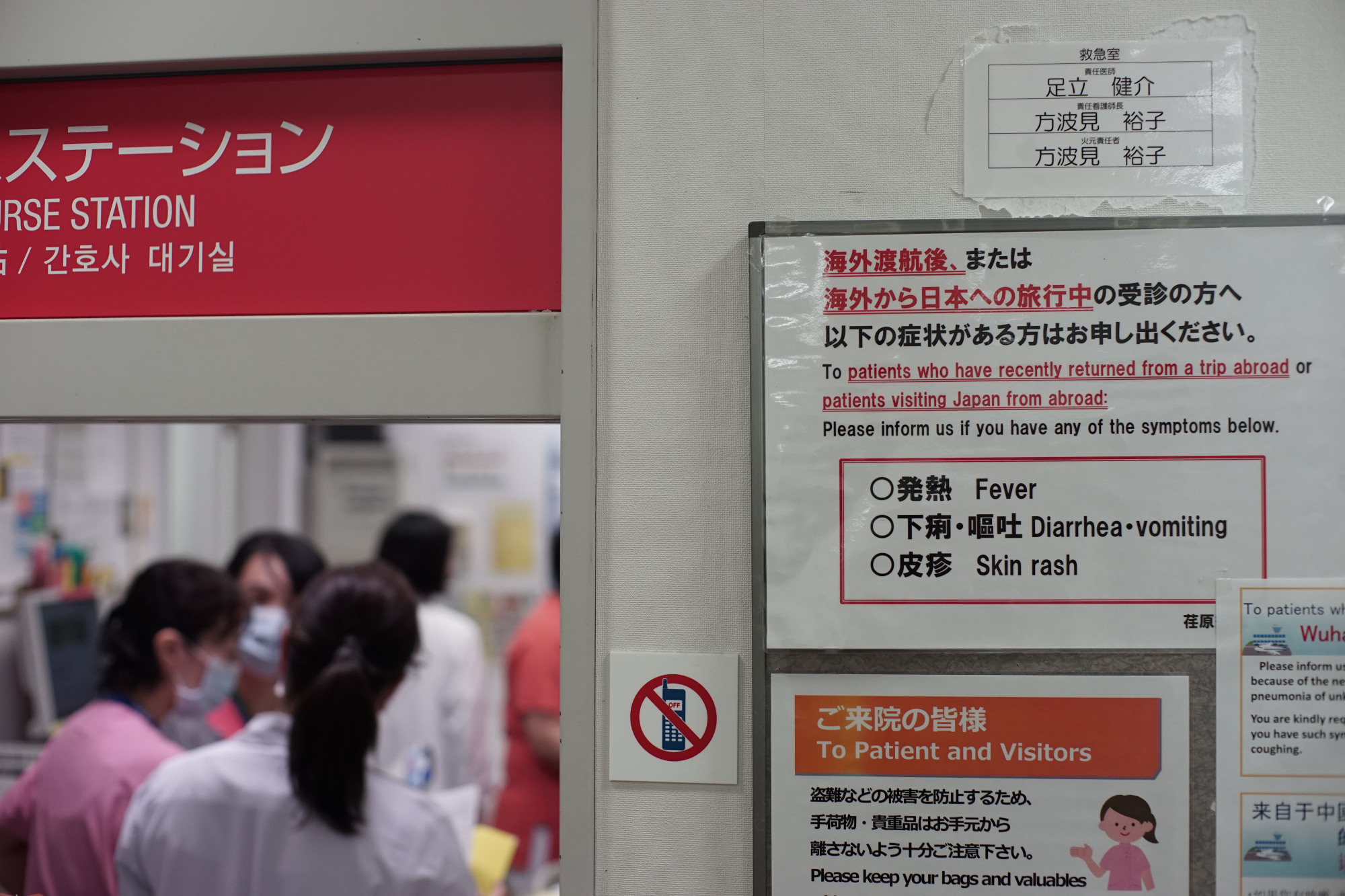I tend to say "gesundheit" when I hear someone くしゃみ (kushami, sneeze) nearby. It means something close to "high health" in German. Others say "bless you," but I always wondered if I should say that if I'm not religious. I asked a Chinese friend if he says anything when people sneeze and he told me that when he was younger his parents would say, "yībǎi suì" on the first sneeze and "liǎngbǎi suì" on the second. The first word means "100 years" and the second "200," and is also a wish for a long life.
In Japan it seems that you don't say anything when someone sneezes, but that doesn't mean you don't notice every sneeze and cough you hear, especially these days. Japan is in the middle of a 大パニック (daipanikku, large panic) thanks to news of a spreading 新型のコロナウイルスによる肺炎 (shingata no koronauirusu ni yoru haien), a term used to describe a new coronavirus.
The virus — a 伝染病 (densenbyō, contagious disease) — was first detected in the Chinese city of 武漢 (Bukan, Wuhan). Now, that city is effectively under 検疫 (ken'eki, quarantine) as Chinese authorities have put restrictions on movement in and out of the city. Still, 新型肺炎の感染が広がっている (shingata haien no kansen ga hirogatte-iru, the new coronavirus' infection is spreading) and as of Jan. 30, 日本国内で11人の感染者が確認されました (Nihon kokunai de jūichi-nin no kansensha ga kakunin saremashita, 11 people in Japan have been confirmed to have the virus). The Japanese government has labeled it a 指定感染症 (shitei kansenshō, designated infectious disease).

















With your current subscription plan you can comment on stories. However, before writing your first comment, please create a display name in the Profile section of your subscriber account page.